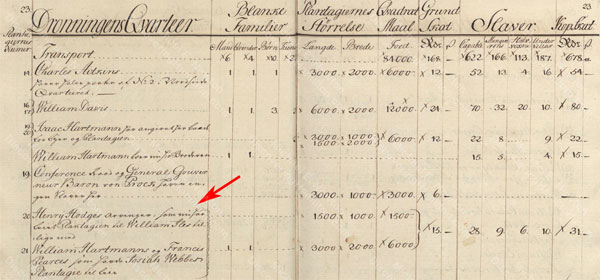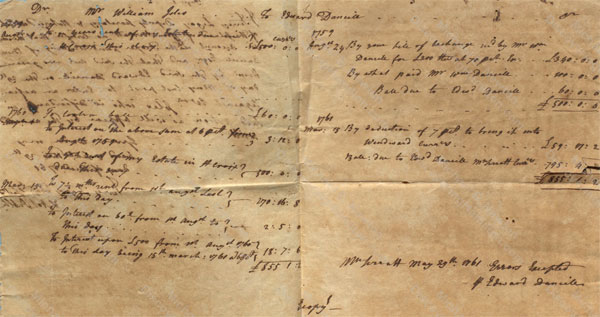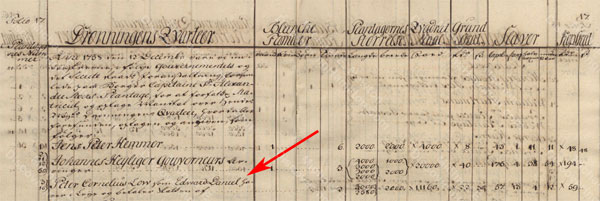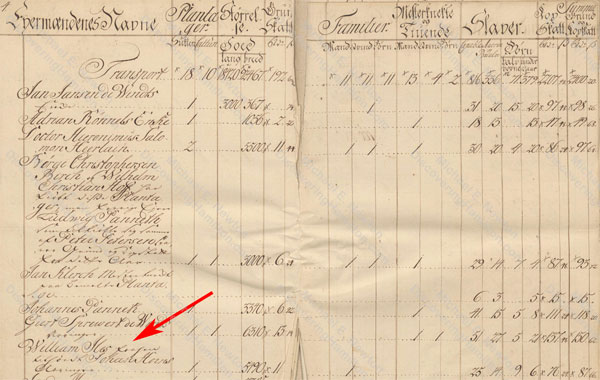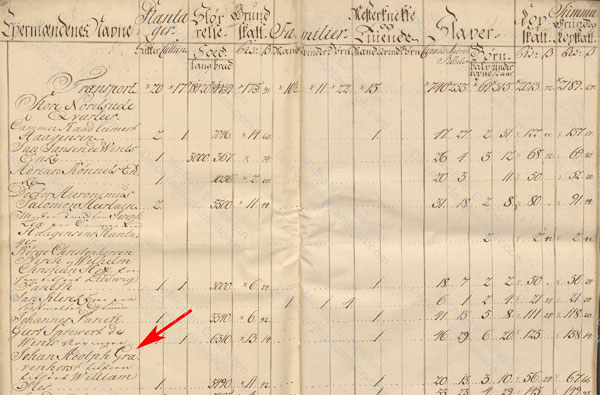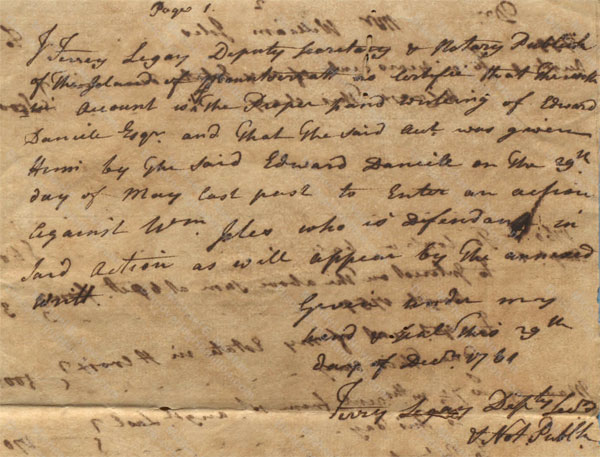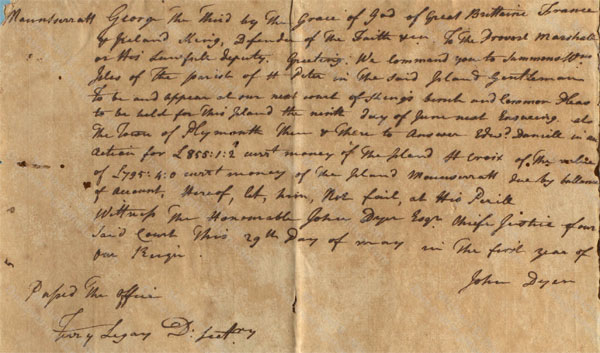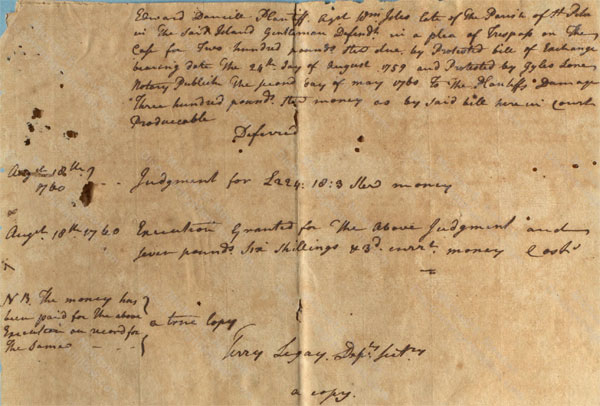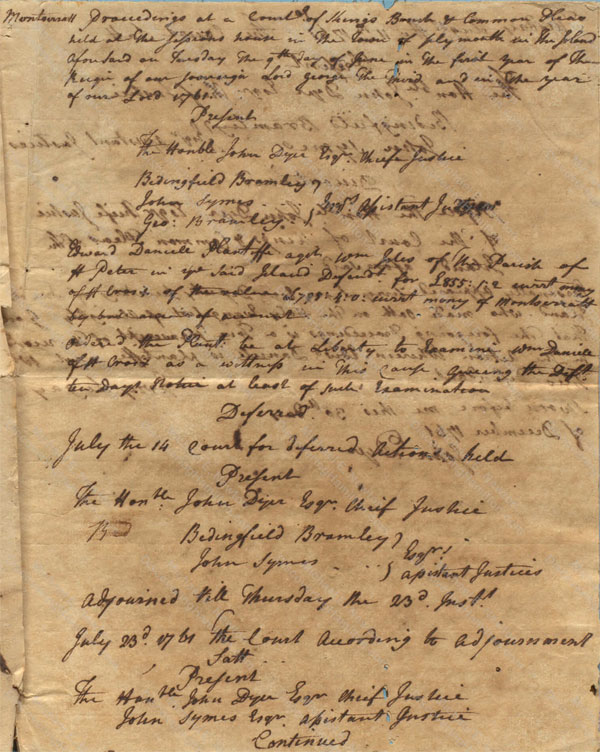Much of the information in this blog (and in all previous Hamilton bios) has been updated, expanded, or even corrected in Michael E. Newton's new book Discovering Hamilton. Please check that book before using or repeating any information you read here on this blog (or that you read in previous Hamilton biographies).
Previously I wrote about how Alexander Hamilton’s aunt, Jemima Faucett, had married a man named William Iles in 1730. The following year, Jemima Faucett Iles gave birth to William Iles Jr. This William Iles Jr. appeared on St. Croix in 1758, with a woman, presumably his wife, but he then moved to Montserrat, probably in 1760. (For the details and sources of the above facts, see part 1, part 2, and part 3 of my blog post about Jemima Faucett Iles Gurley.)
Since writing the above about William Iles Jr., additional information has been found about him, giving us a more complete picture of his life. (Ideally, this new information would be added to the already existing blog posts at their appropriate locations, but for now this gets its own post.)
William Iles Jr. on St. Croix in 1758
It will be recalled, as noted in the summary above, that William Iles Jr. was on St. Croix at the end of 1758 along with a woman, presumably his wife. According to the matrikel (census and tax register) of that year, Iles and this woman lived on the No. 20 Dronningens Qvarteer (Queen’s Quarter) plantation which he leased from “Hendry Hodge’s heirs.”
Subsequent matrikels show that Iles leased this plantation until 1762 but had stopped living there some time in 1759.
William Iles Jr. Rents St. Croix Estate from Edward Daniel
A recently discovered record shows that William Iles rented the St. Croix estate of Edward Daniel for a year ending August 1759, for another year ending in August 1760, and for 7 ½ months ending March 15, 1761. In other words, William Iles rented Daniel’s estate from August 1758 to March 1761. At the end of this period, Iles owed Daniel £795 4s.
This rental period coincides with the date of William Iles’s first appearance on St. Croix in 1758. However, Iles departed St. Croix by September 1760 but continued to rent the estate until March 1761. One assumes that either Iles had a rental agreement with Daniel that he could not void when he left St. Croix or that he chose to continue renting the estate after his departure and had a manager run it for him.
One might assume that the estate William Iles Jr. rented from Edward Daniels was the above No. 20 Queen’s Quarter plantation, but it is not certain. That estate was leased from the heirs of Henry Hodge, not from Edward Daniel. It is possible that Edward Daniel was an heir to Henry Hodge and thus rented out No. 20 Queen’s Quarter to Iles, but no record connecting Daniel to Hodge has been found. On the other hand, Edward Daniel is found in the matrikels at Nos. 3 and 10 Queen’s Quarter, which was owned by Peter Cornelius Low but “which Edward Daniel rents and pays the tax on.”[1] Perhaps Daniel subleased this estate to Iles. If so, one assumes that the 86 slaves found thereon were included in the rental rather than being owned by Iles.
None of the matrikels from this period list Edward Daniel and William Iles together, so it is impossible to determine with certainty which plantation Iles rented from Daniels. Nevertheless, the matrikel does list William Iles Jr. as leasing and living on No. 20 Queen’s Quarter, so one assumes that Edward Daniel was the heir of Henry Hodge who leased the estate to Iles.
William Iles Jr. and the Planned St. Croix Slave Insurrection of 1759
According to an account of the planned December 1759 slave insurrection of St. Croix, one of William Iles’s slaves was acquitted of any involvement in the scheme.[2]
According to the 1759 matrikel, William Iles no longer lived at his No. 20 Queen’s Quarter plantation. Nevertheless, 53 slaves were found on Nos. 20 and 21 Queen’s Quarter.
William Iles must have owned all or some of these 53 slaves and one of them had been accused of being involved in the planned rebellion, for which he was acquitted.
William Iles Jr. Acquires St. Thomas Plantation
Even though he leased a plantation on St. Croix, William Iles Jr. wanted more. On January 3, 1759, Iles took out a mortgage of 40,000 rigsdalers from Johann Adolph Gravenhorst and provided as collateral a plantation in St. Thomas’s North Quarter, which he presumably purchased at that time.
According to that year’s matrikel for St. Thomas, William Iles Jr. owned the sugar plantation in North Side Quarter “formerly belonging to Johan Horn’s heirs.” The matrikel shows one man living on the plantation, presumably William Iles himself, but no wife or children with him. Iles also owned 54 slaves, who worked the plantation for him. This plantation and the slaves were probably what Iles acquired with his 40,000 rigsdaler loan.
Thus, William Iles Jr. owned a plantation on St. Thomas, leased another on St. Croix, and owned slaves on both islands. He obviously was a man of considerable holdings.
William Iles Loses His St. Thomas Plantation
Apparently, the 40,000 rigsdaler debt William Iles took on to acquire his St. Thomas plantation along with the £795 4s he owed Edward Daniel and perhaps other debts as well were too much for him. The St. Thomas matrikels of 1760 and 1761 list the St. Thomas plantation as being owned by “Johan Adolph Gravenhorst, formerly belonging to William Iles.” Not only did Gravenhorst take possession of William Iles’s plantation, but with nearly the same number of slaves—46 in 1760 versus 54 in 1759—it appears that Gravenhorst also acquired most if not all of Iles’s slaves.
Not only did Iles lose his St. Thomas plantation, but it also appears that he fled the Danish colonies of St. Thomas and St. Croix to escape his debts because he is no longer found in the matrikels of either Danish island and is instead living on the British-controlled island of Montserrat by September 1760.
Legal Action Against William Iles Jr.
Fleeing the Danish islands for Montserrat, William Iles still owed £795 4s to Edward Daniel for the estate he rented on St. Croix. Daniel entered into an “action” against Iles in May 1761, but it was difficult for Daniel to collect since Iles was now living in a different jurisdiction. The records that have been found show that no resolution of this “action” had been reached by January 1762. It is not known whether Edward Daniel ever recovered the £795 4s that William Iles Jr. owed him.
Conclusion
As you can see, the story of William Iles Jr. is quite complicated and there is much uncertainty due to the scarcity of evidence. Moreover, nothing has been found regarding Iles’s later life, including the date and location of his death. Relying on scattered records from multiple islands give us a partial but incomplete picture of this first cousin of Alexander Hamilton.
Perhaps a more thorough search of the records of St. Thomas or Montserrat will yield additional details, but I have not done so and do not plan to because the records of those islands are largely irrelevant to my general research into Alexander Hamilton, his immediate family, friends and colleagues.
Announcement
I am heading to New York City for a couple of weeks. I probably will not be writing any blog posts while I am away.
Endnotes
[1] Translation provided by Prof. Daniel Hopkins.
[2] Account of the Negro Rebellion on St. Croix, Danish West Indies, 1759.
Copyright
© Posted on November 26, 2018, by Michael E. Newton. Please cite this blog post when writing about these new discoveries.


